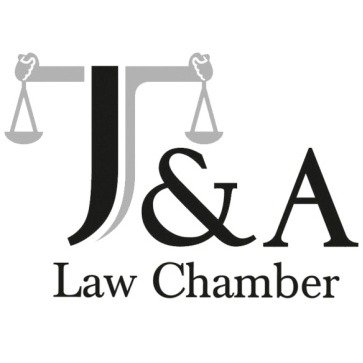Best Wrongful Termination Lawyers in Tanzania
Share your needs with us, get contacted by law firms.
Free. Takes 2 min.
Or refine your search by selecting a city:
List of the best lawyers in Tanzania
About Wrongful Termination Law in Tanzania
Wrongful termination in Tanzania occurs when an employee is dismissed from their job in a manner that violates employment laws or contractual agreements. The Employment and Labour Relations Act, 2004, primarily governs employment relationships and stipulates the conditions under which an employee can legally be terminated. Termination can be deemed wrongful if it lacks just cause or if the proper procedure was not followed. Employees who believe they have been wrongfully terminated may seek legal recourse to obtain remedies which may include reinstatement, compensation, or any other relief the courts deem fit.
Why You May Need a Lawyer
Engaging a lawyer can be crucial in wrongful termination cases for several reasons:
- Understanding Complex Laws: Employment law can be intricate, and a lawyer can help you interpret relevant legal provisions and how they apply to your case.
- Case Evaluation: Lawyers can assess the validity of your wrongful termination claim and advise on the best course of action.
- Negotiation Skills: Experienced legal representation can often lead to more favorable settlements through negotiation rather than litigation.
- Litigation Support: If a settlement is not possible, a lawyer can represent you in court and help present your case effectively.
- Ensuring Procedural Compliance: A lawyer ensures that your case complies with procedural requirements, such as filing deadlines and documentation, which is critical for a successful claim.
Local Laws Overview
Key aspects of Tanzanian law relevant to wrongful termination include:
- Just Cause: Employers must have just cause for terminating an employee's contract, such as misconduct, incapacity, or redundancy.
- Fair Procedure: Employers must follow a fair procedure, often including notice, a hearing, and an opportunity for the employee to defend themselves.
- Employment and Labour Relations Act, 2004: This Act is the primary legislative framework governing employment matters, including termination.
- Compensation Claims: Wrongfully terminated employees may file claims for compensation for unfair termination, often determined by their length of service and other factors.
- Labour Dispute Resolution: Disputes are typically resolved through mediation, arbitration, or the Labour Court.
Frequently Asked Questions
What constitutes wrongful termination in Tanzania?
Wrongful termination may include dismissals without just cause, failure to follow the required procedure, or dismissals that contravene terms of an employment contract or statutory provisions.
How can I prove wrongful termination?
Proof usually involves demonstrating that the dismissal was not justified or the correct procedure was not followed. Documentation, witness testimonials, and any correspondence with the employer can be helpful.
What should I do if I believe I have been wrongfully terminated?
Consulting with a lawyer specializing in employment law is recommended. They can evaluate your case and guide you on potential remedies and actions to take.
How long do I have to file a wrongful termination claim?
The time limit for filing a wrongful termination claim is typically sixty days from the date of termination, but it is advisable to act promptly.
What remedies are available for wrongful termination?
Possible remedies include reinstatement to your former position, payment of lost wages and benefits, or any other equitable relief deemed appropriate by the courts.
Is severance pay mandatory in Tanzania?
Severance pay is generally required if an employee is terminated after 12 months of continuous service unless terminated for misconduct, among other exceptions.
Are probationary employees protected under wrongful termination laws?
Probationary employees have limited protection; however, they cannot be terminated based on discrimination or other unlawful reasons.
Can a lawyer help me obtain a settlement without going to court?
Yes, many employment disputes are settled through negotiation or mediation facilitated by lawyers, making court proceedings unnecessary.
Am I entitled to a warning before being terminated?
Generally, the law requires that a fair disciplinary procedure be followed, which often includes warning letters for misconduct before termination.
What is the role of the Commission for Mediation and Arbitration (CMA)?
The CMA helps to mediate and arbitrate labor disputes, including wrongful termination claims, to reach a fair resolution for both parties.
Additional Resources
For further assistance, you may find the following resources helpful:
- Commission for Mediation and Arbitration (CMA): Handles employee-employer disputes through mediation and arbitration processes.
- Tanzania Employment and Labour Relations Court: Offers judicial assistance for resolving complex employment disputes.
- Legal Aid Providers: Various NGOs and legal aid organizations offer free or low-cost legal assistance for those unable to afford a private lawyer.
Next Steps
If you believe you need legal assistance regarding wrongful termination, the following steps can guide you:
- Consult a Lawyer: Schedule a consultation with a lawyer experienced in Tanzanian employment law to evaluate your case.
- Gather Documentation: Collect all relevant documents, including employment contracts, communication with your employer, and any procedural notices.
- File a Complaint: If advised, file a complaint with the Commission for Mediation and Arbitration or pursue further legal action in the Labour Courts.
- Consider Mediation: Engage in mediation or other alternative dispute resolution methods to potentially resolve the issue without formal litigation.
Lawzana helps you find the best lawyers and law firms in Tanzania through a curated and pre-screened list of qualified legal professionals. Our platform offers rankings and detailed profiles of attorneys and law firms, allowing you to compare based on practice areas, including Wrongful Termination, experience, and client feedback.
Each profile includes a description of the firm's areas of practice, client reviews, team members and partners, year of establishment, spoken languages, office locations, contact information, social media presence, and any published articles or resources. Most firms on our platform speak English and are experienced in both local and international legal matters.
Get a quote from top-rated law firms in Tanzania — quickly, securely, and without unnecessary hassle.
Disclaimer:
The information provided on this page is for general informational purposes only and does not constitute legal advice. While we strive to ensure the accuracy and relevance of the content, legal information may change over time, and interpretations of the law can vary. You should always consult with a qualified legal professional for advice specific to your situation.
We disclaim all liability for actions taken or not taken based on the content of this page. If you believe any information is incorrect or outdated, please contact us, and we will review and update it where appropriate.
Browse wrongful termination law firms by city in Tanzania
Refine your search by selecting a city.













